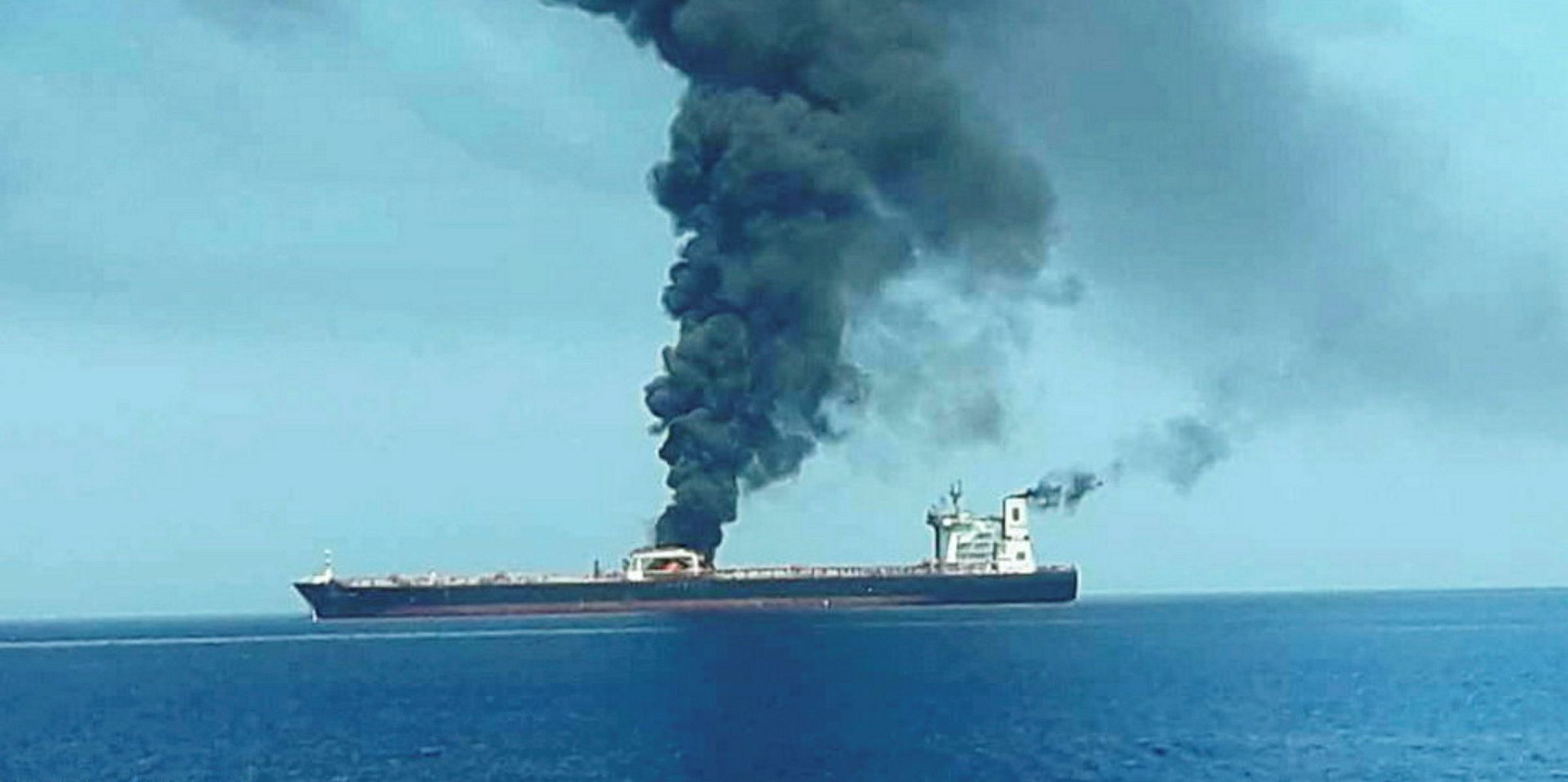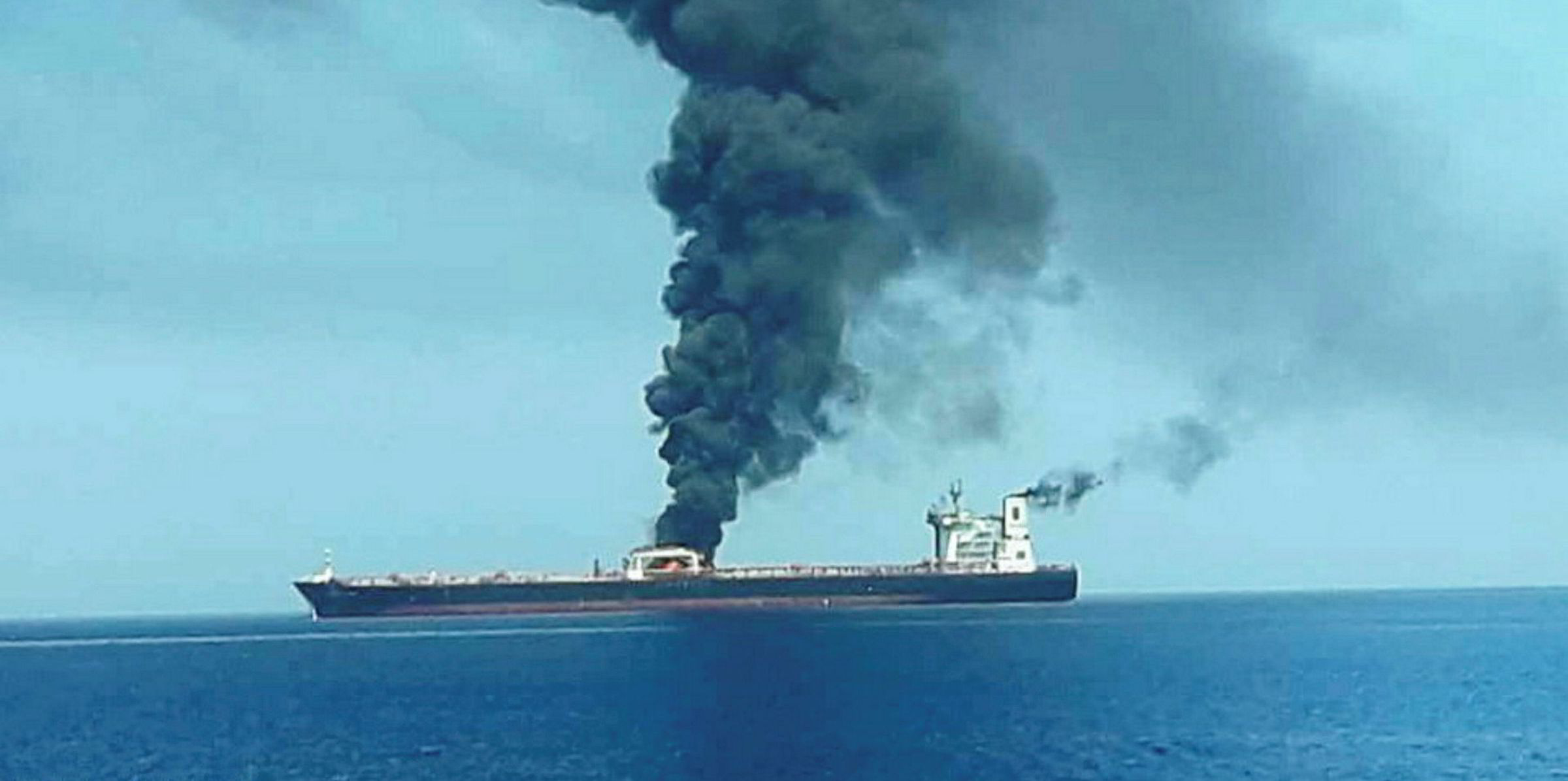Shipowners are closely watching the situation in the Middle East and weighing up loading cargo stems out of ports in the areas following today’s double tanker attack in the Gulf of Oman.
Brokers commented that it is an “easy decision” for owners wanting to duck offering in on any enquiries in what is a poor trading market for large tankers trading cargoes east out of the Arabian Gulf.
“It is an exceedingly low market,” one said. “If you were going to stop a ship now is the right time to do it.”
They said owners’ immediate concerns were for the safety of their crews in the area but now attention is turning to the detail of what happened and how it might affect rates.
All eyes were focused on the overnight fixture of the 317,000-dwt Athenian Freedom (built 2013) which was fixed for voyage to China loading out of the region at WS 37 and how this business might be affected.
Rumours were rife that a series of named owners are saying they would not trade their vessels out of the region.
But brokers who had spoken to these companies said this was untrue at present and that most shipowners were evaluating the situation.
A charterer said: “The spot tanker charter market has effectively halted. The owners are saying they need to re-assess their risks, so we are not really moving either.”
Speculation about the affect a possible closure of the Strait of Hormuz could have on business and the wider oil markets was also reverberating around the wider market.
Based on Alphatanker’s estimates, about 7% of the global tanker fleet are located within the Middle East Gulf at any given time.
“In the event of further attacks, one possible option could be the use of convoys to escort tankers through the region. If this was the case it would severely delay tankers of all sizes in both directions,” analysts at Alphatanker said.
“Any delay to shipping in the region is evidently bullish for rates as it would tighten tonnage.”
Tanker brokers said in theory the dual attacks could see rates rise if shipowners decided to pull their vessels from loading in the area.
But they commented that the weak state of the market has prompted a cut-throat attitude among owners who might not act with one voice in this situation.
Another said it may also prompt a drop in what had been a rising Atlantic market if owners opt to ballast there.
Tanker market specialists said it is “too early” to see how owners and charterers might react.
One broker commented that as this appeared to be “an act of terror” it made it more difficult to predict how vessels should proceed.
“I think people need to understand a bit more what has taken place,” one said.
Alphatanker analysts warned any escalation of geopolitical tension leading to the blockage of Strait of Hormuz could spell “disaster for tanker markets, given the volumes of crude and products which would be stranded in the Gulf”.
“There are very few alternative export routes from the Middle East,” they said.





